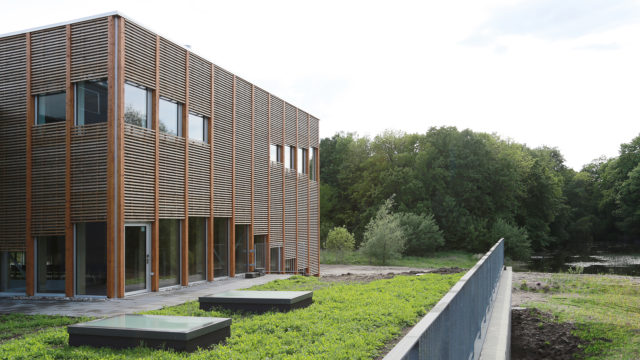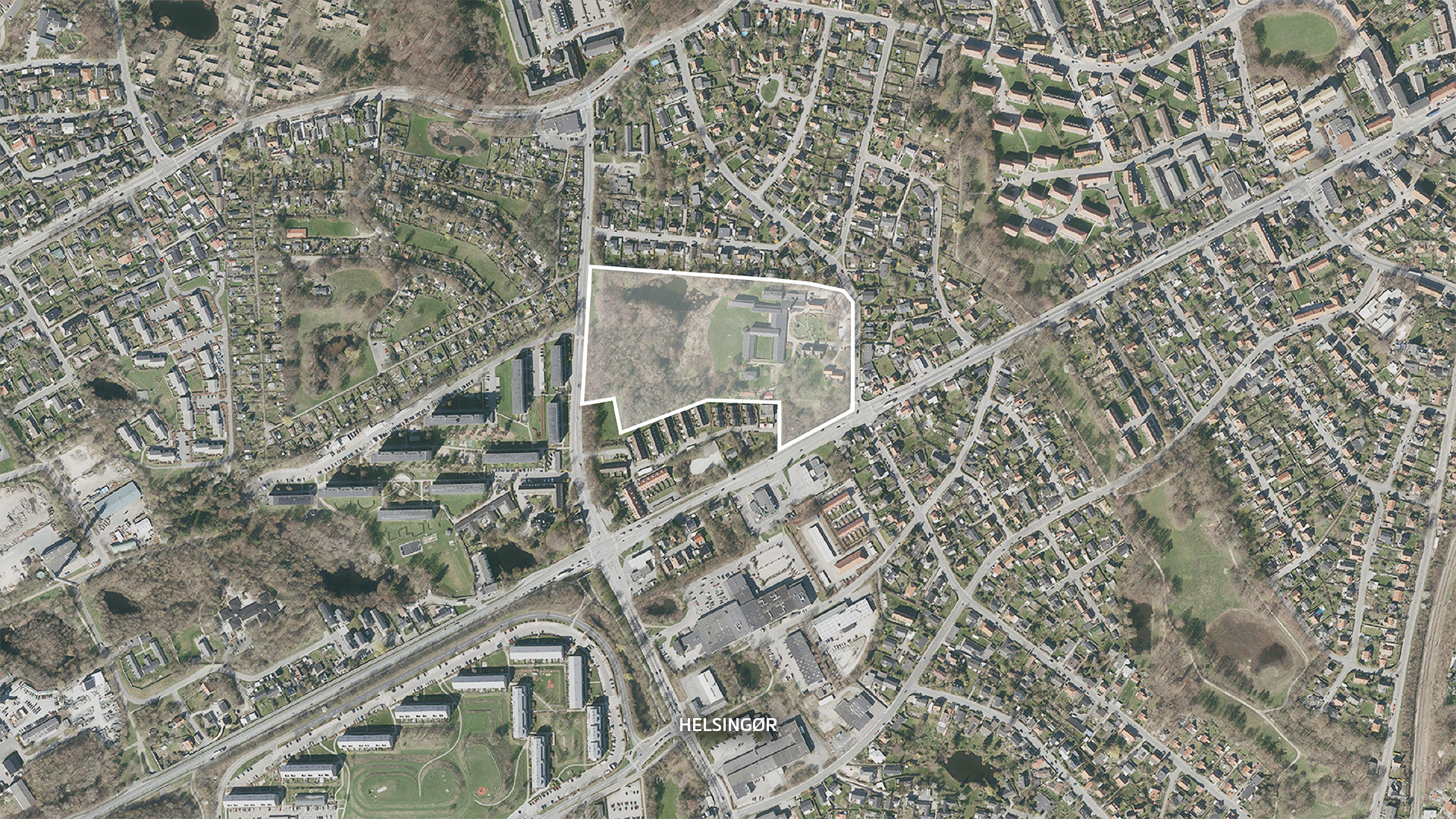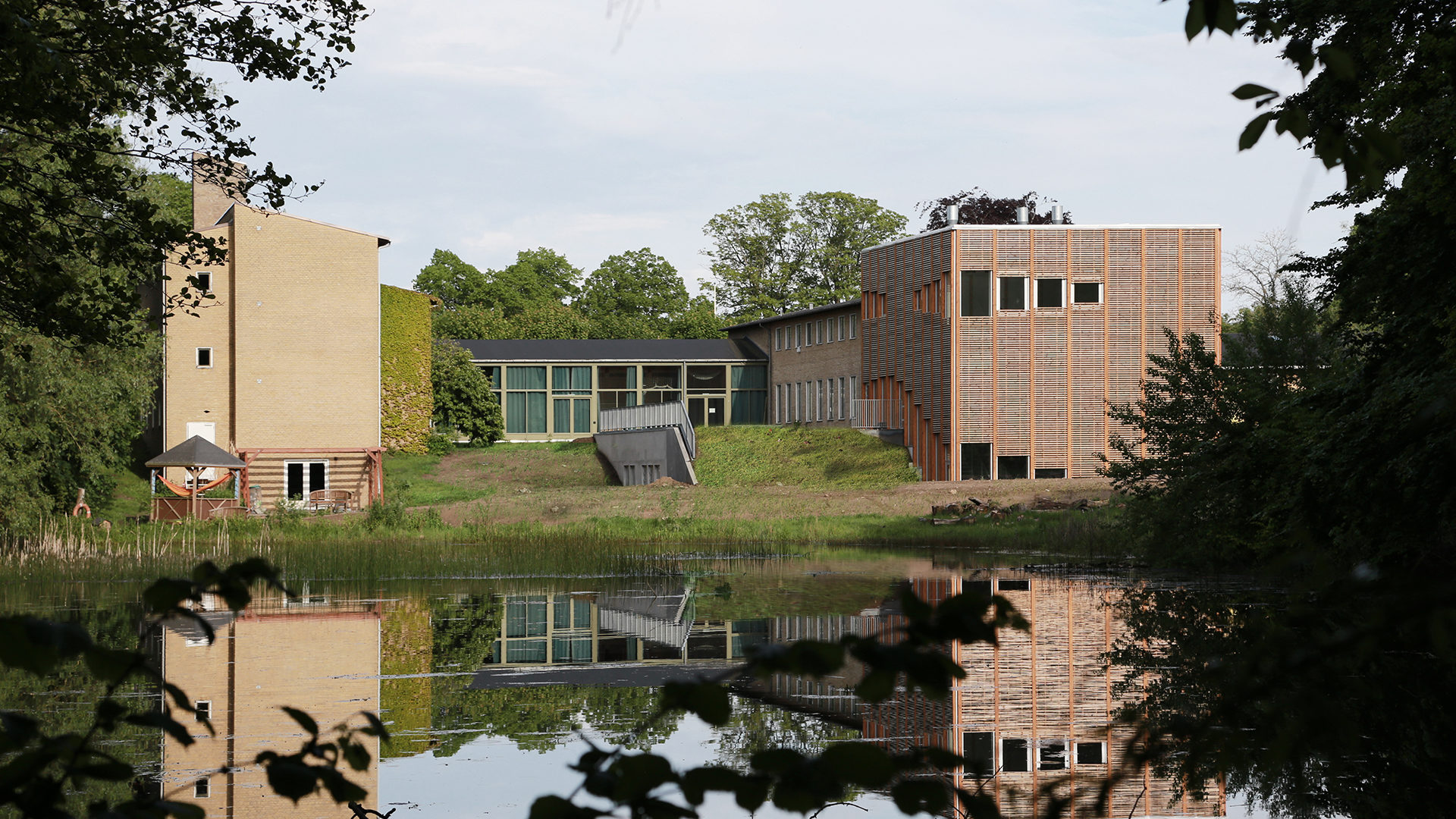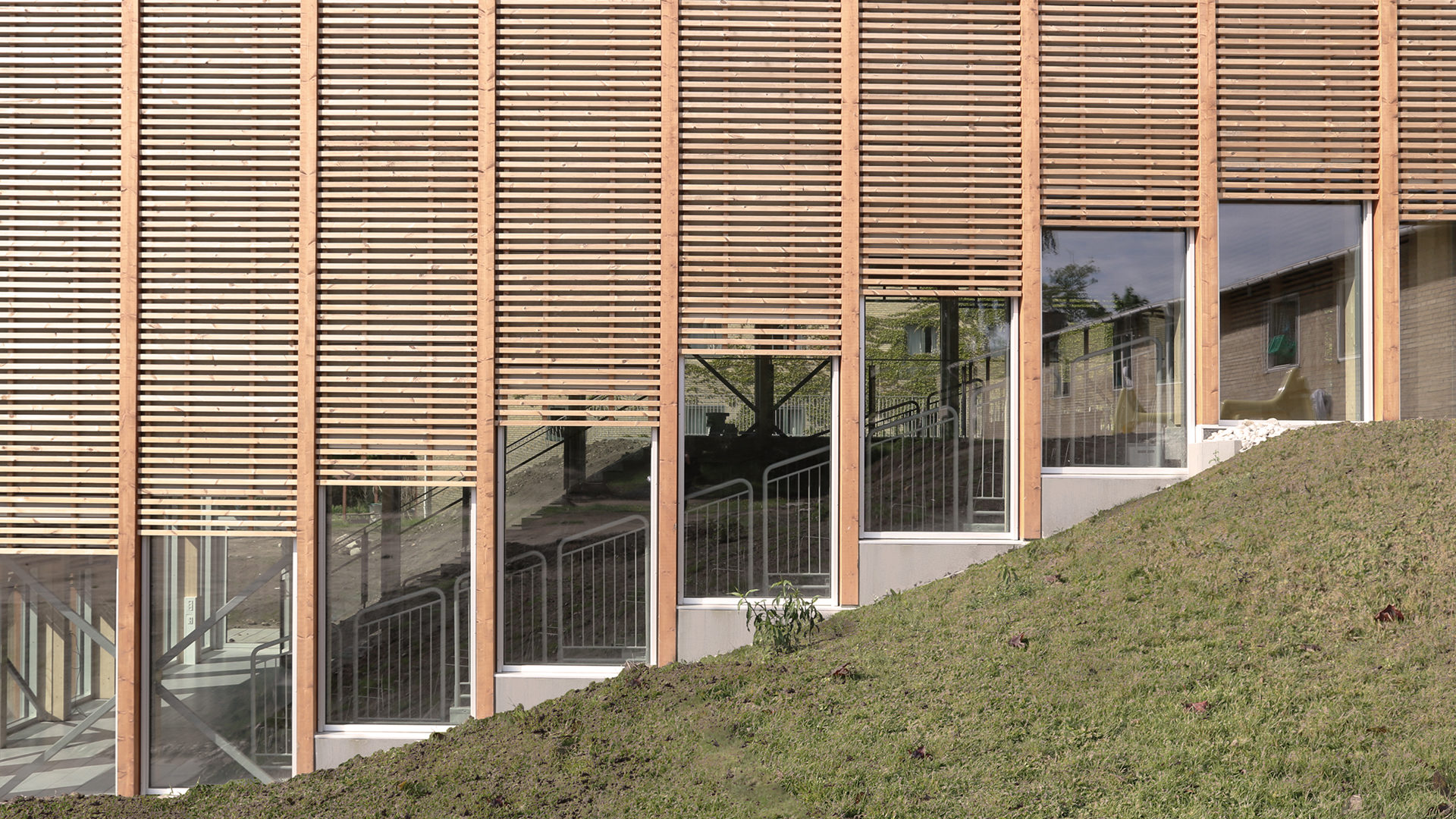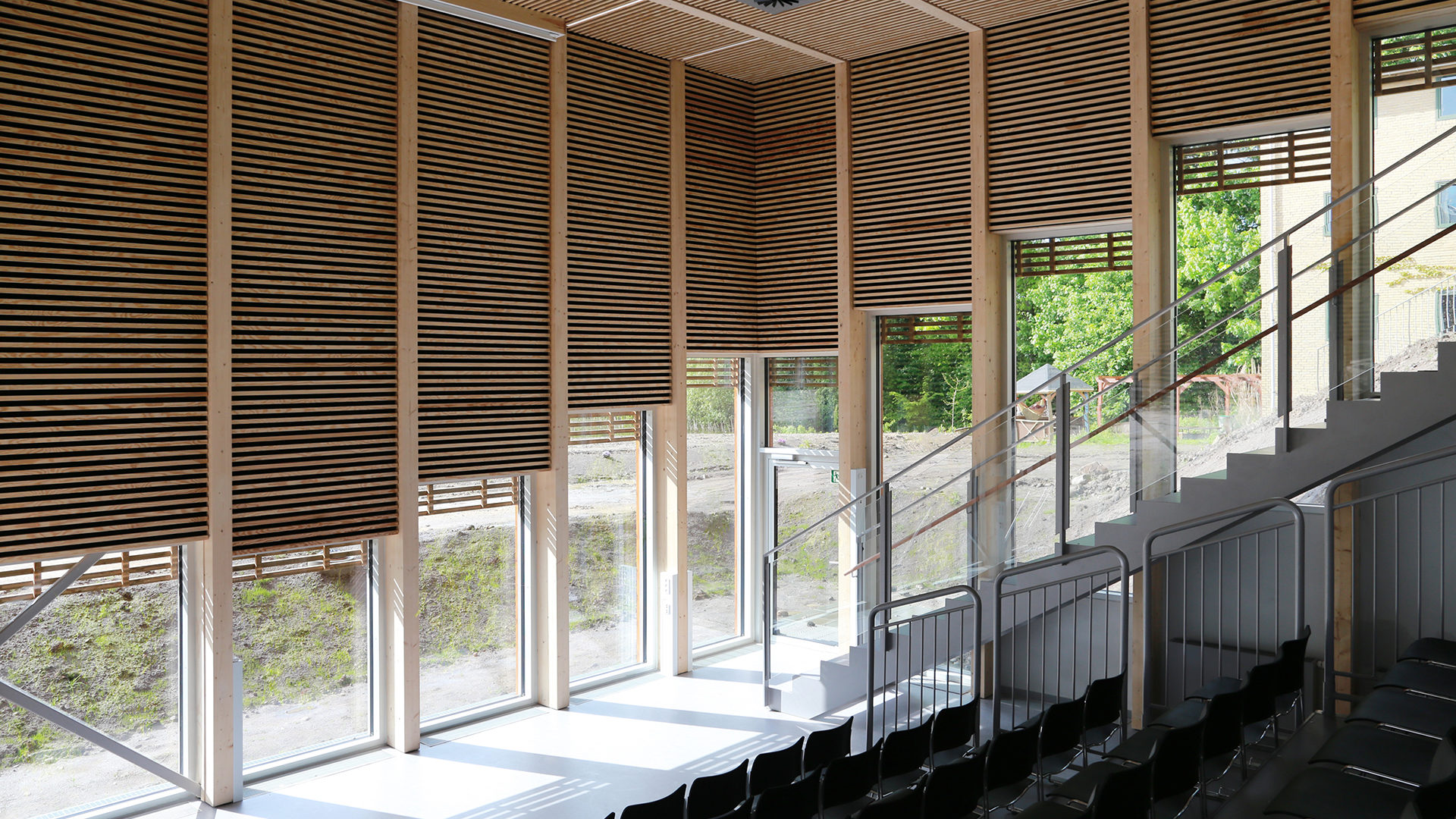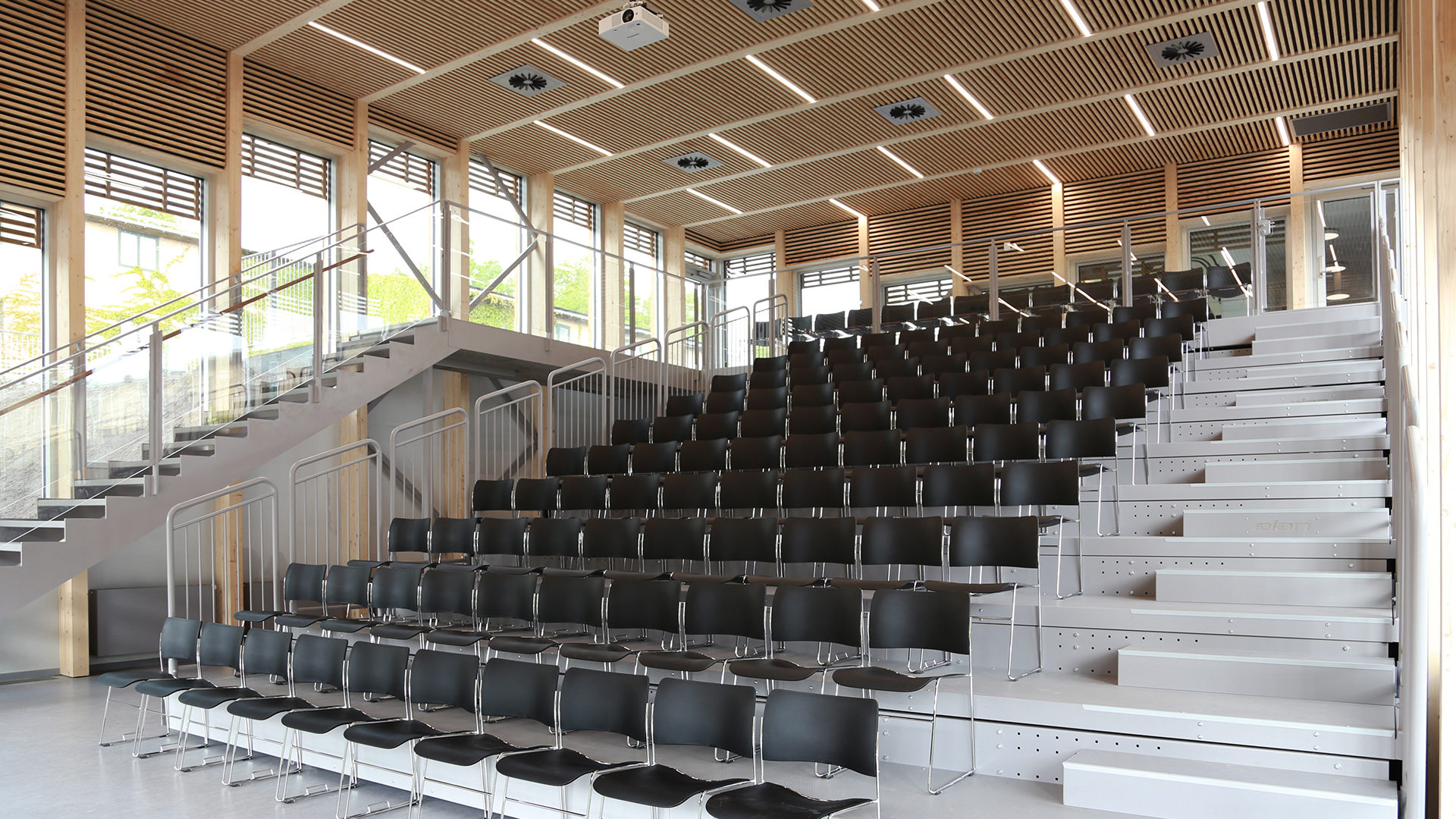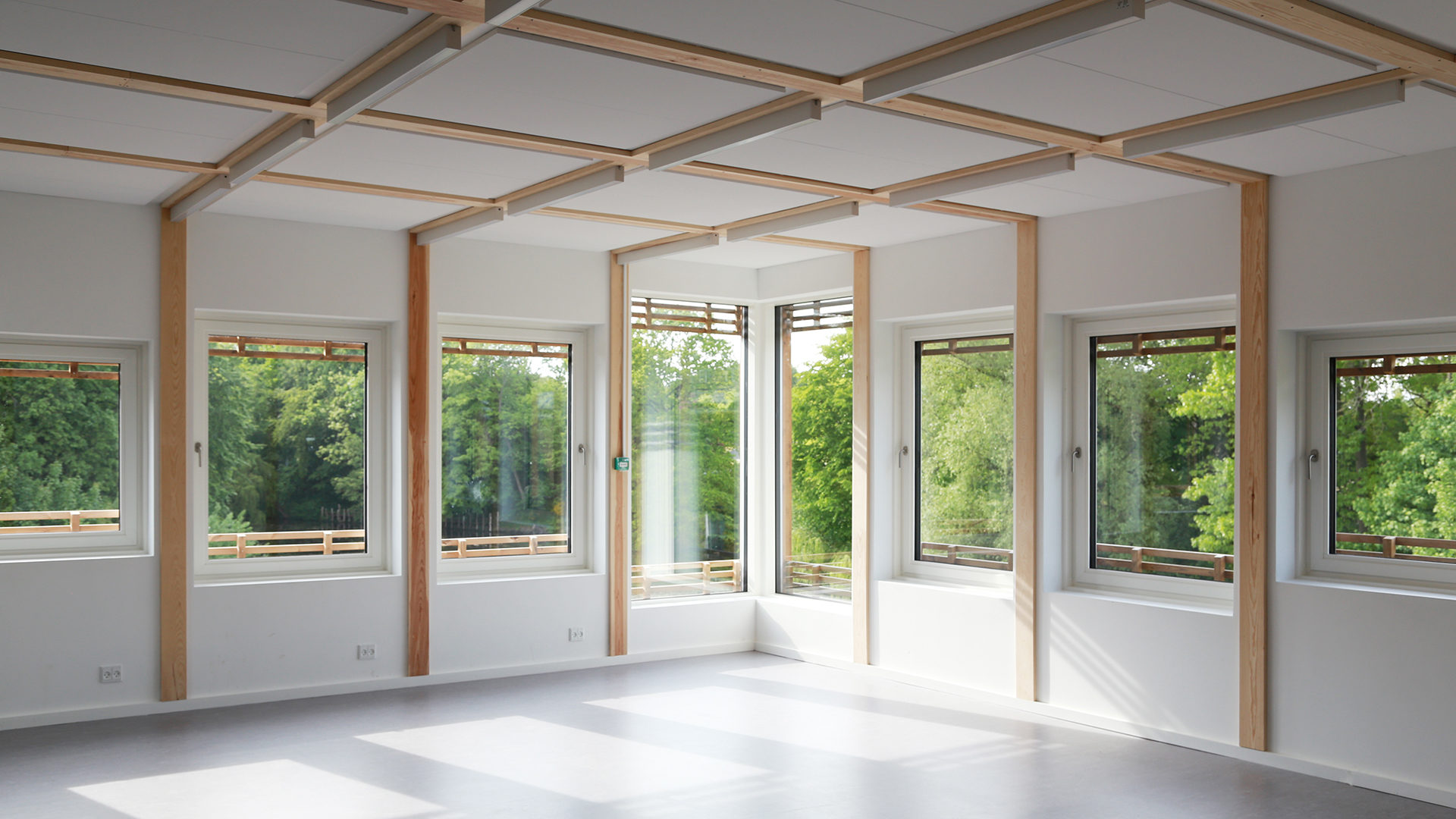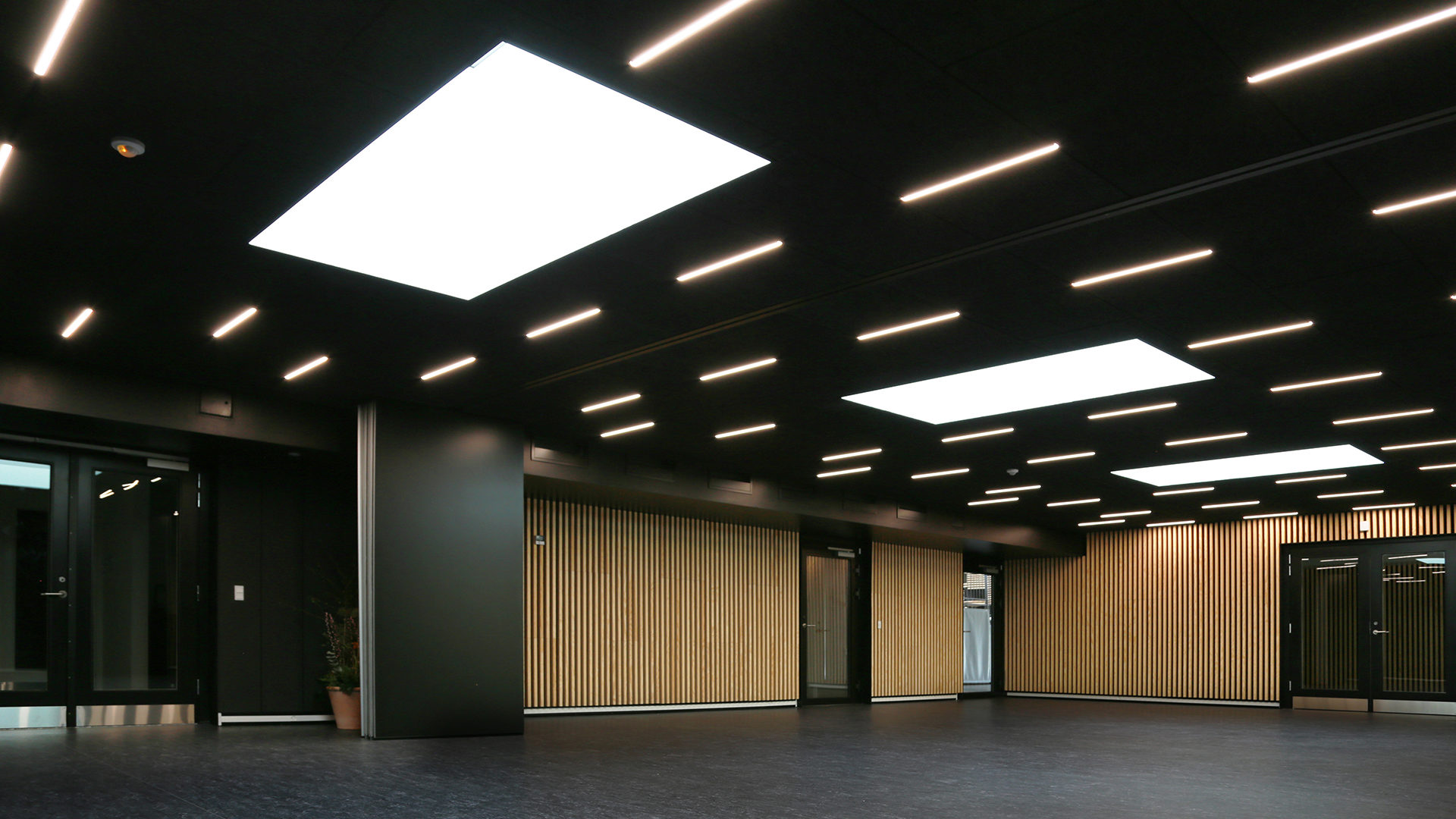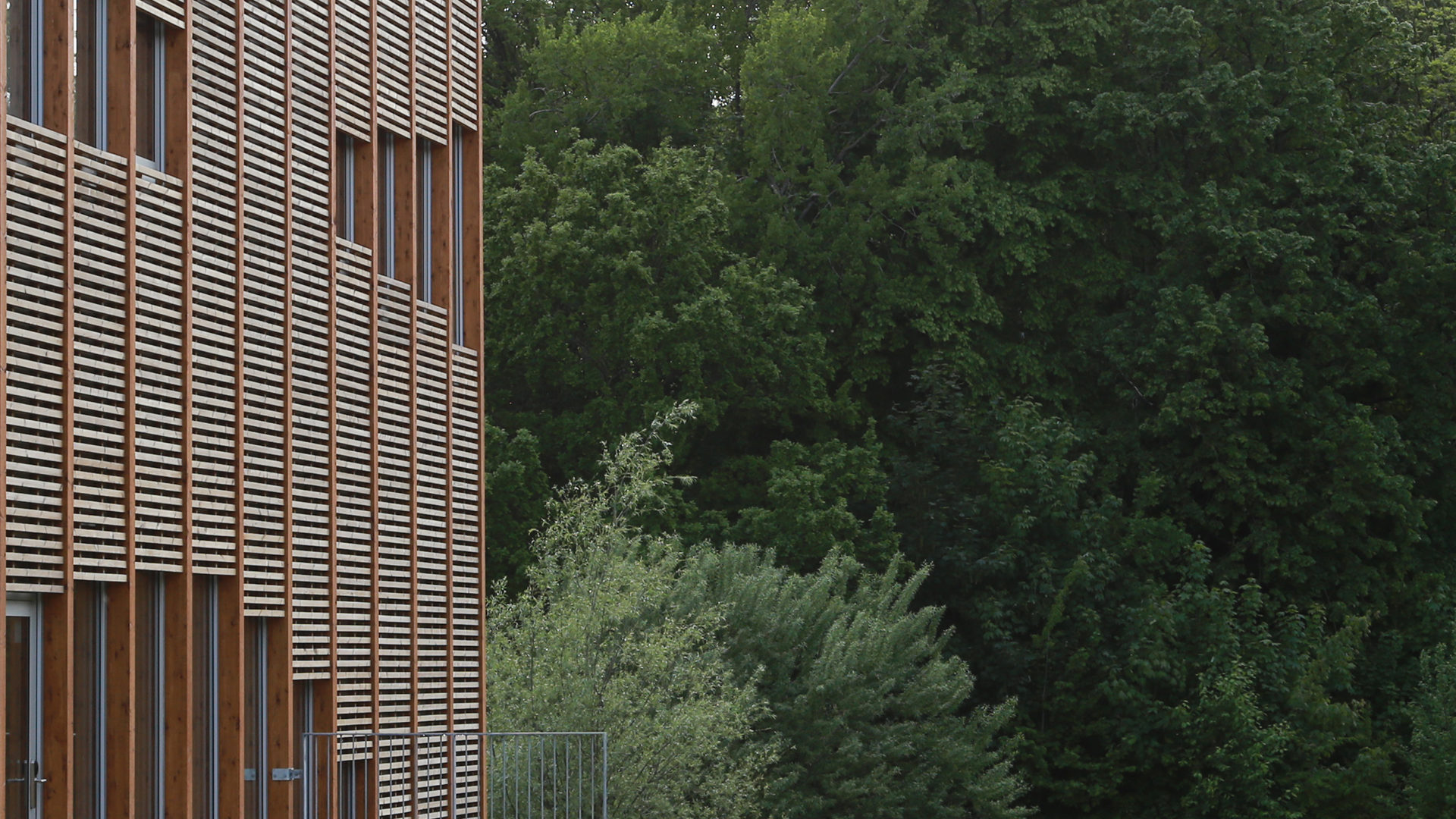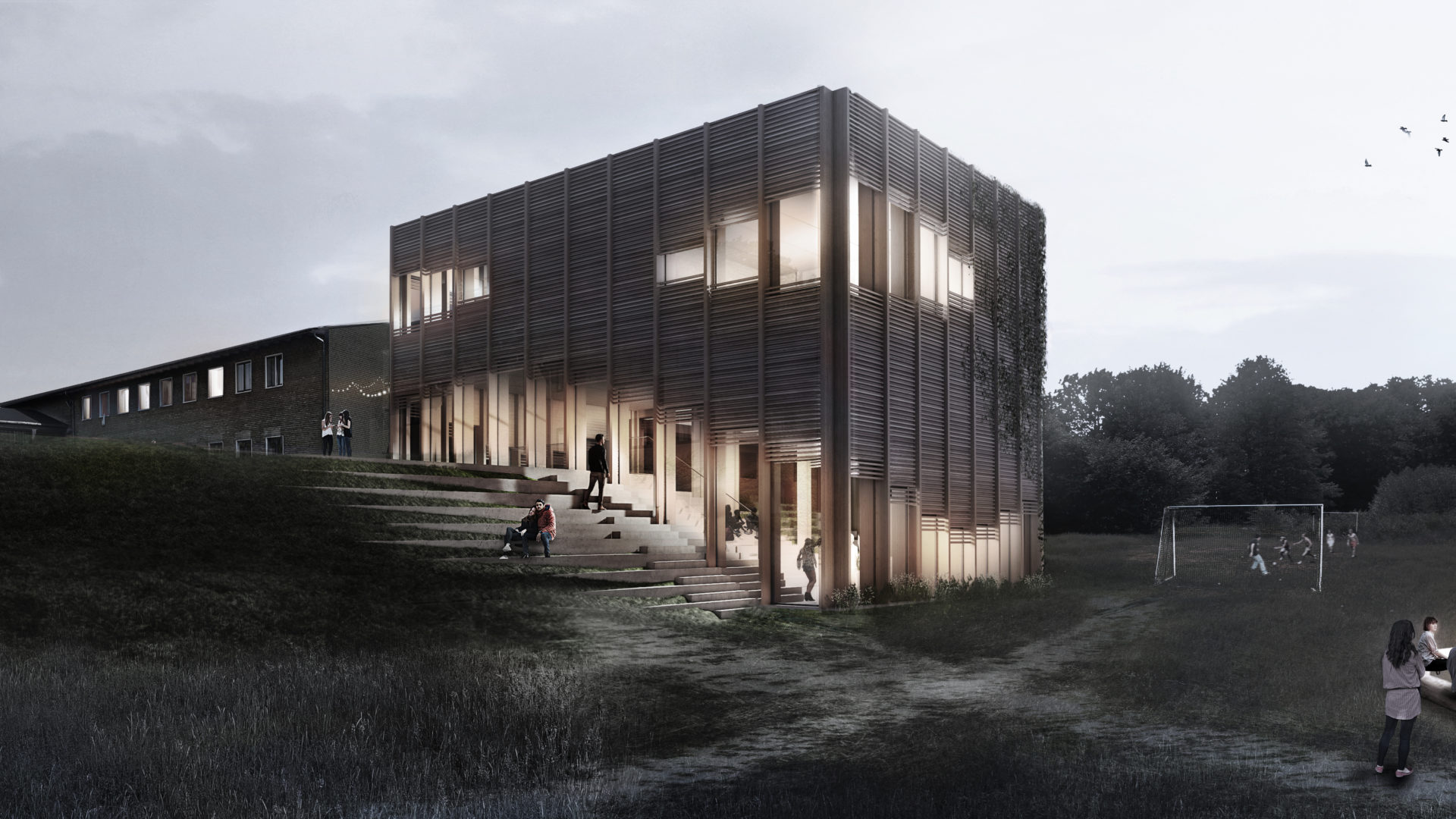International People’s College
Since 1921, the International People’s College (IPC) has been a hub for international students to connect, learn, and exchange ideas, embodying the Danish Folk High School culture. In 2018, URBAN POWER won the first prize in an invited competition to design a new extension for IPC. They subsequently completed the detailed design and oversaw construction.
The new extension enriches IPC with additional teaching spaces and a central social hub designed for events and debates, aligning with the school’s focus on dialogue, transparency, and a global outlook. The building’s layout provides a 180-degree view of the surrounding park, symbolically connecting students to the wider world. This addition complements the existing school building, originally designed by the Danish architect Steen Eiler Rasmussen in traditional yellow brick. The extension respects the original design while introducing a contemporary, lightweight structure.
The key concept driving the project was to create a space that fosters diverse learning experiences while blending harmoniously with the landscape. The extension features two main components: a subtle, partially underground structure, and the striking main building housing the grand UN hall.
To maximize the limited site area, innovative and sustainable solutions were integrated into the design. The plan incorporates eco-friendly materials and multi-functional spaces. For example, the hall can expand seamlessly by opening its doors, enabling outdoor classes near the park and lake. Its mobile wooden furniture allows the space to adapt for performances, social gatherings, or other activities.
Wood serves as the primary construction and cladding material for the main building, emphasizing vertical support pillars and creating horizontal slat patterns that follow the sloping landscape toward the garden. From the project’s outset, sustainability was a core principle, reflected in features such as rainwater harvesting, the use of sustainable materials, and an emphasis on indoor climate quality.
The lower building is integrated into the terrain with a green roof, blending naturally into the landscape. It houses spaces like lounges, music rooms, and party areas, positioned underground to reduce noise and provide quiet for resting students. The new IPC extension stands as a dynamic framework for social interaction, cultural exchange, and democratic dialogue.
Read about other designs of educational space: Haarby School Plus, Våler School and Library, Idrætshøjskolen
- Location Helsingør, Denmark
- Client International Peoples College, A.P. Møller Foundation
- Year 2018-2022
- Status 1st prize in invited competition
- Program Lecture hall, class rooms, event space, rehearsal room, common kitchen
- Site area 12.000 m²
- Floor area 1.350 m²
- Collaborators Henry Jensen (engineer), Gade & Mortensen (acoustics), Weile Arkiteker (advisor), Atrium (client advisor), VIDA (contractor)
- Team Rune Veile, Arne Cermak Nielsen, Sara Buhl Bjelke, Kathrine Blichsted Brauer, Niels Kærsgaard, Javier Gutierrez Sainz, Christian Jensen, Kinga Murawska, Ewelina Purta, Jan Ole Hansen, Michael Dragschitz, Tien-Yi Su
